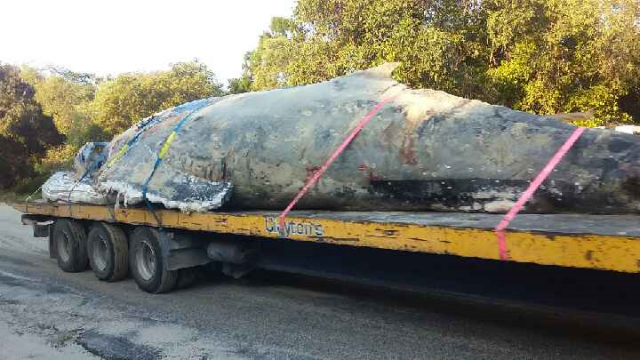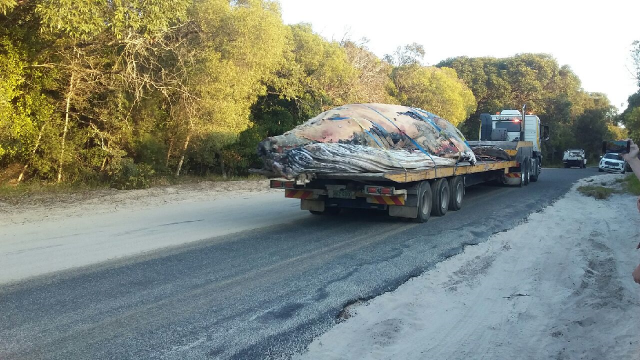Following the discovery of a dead humpback whale near Rainbow Beach, significant efforts were made to ensure public safety and protect the marine ecosystem.
The whale’s carcass was loaded onto a truck and transported through Rainbow Beach, before being buried deep in the Great Sandy National Park at the Department of Environment and Science’s (DES) direction.
The mature humpback whale, measuring about 12 metres long and weighing 18 tonnes, was found by members of the public on 20 June 20. The cause of death remains unknown, as investigations by the DES continue.
Meanwhile, another whale has been discovered washed up on K’Gari.
Queensland’s coastal waters witness the annual migration of over 30,000 humpback whales who journey from the icy waters of Antarctica to breed and calve in the warmer waters off Queensland. While it is unfortunate that some of these magnificent creatures succumb to natural causes or predation, their stranded remains can be found along various beaches in Queensland.
When a whale strands, the Queensland Parks and Wildlife Service (QPWS) collaborates with local councils and Traditional Owners to determine the most appropriate method of disposal. Options range from burial in nearby dunes to securing the carcass in mangroves on certain islands off Queensland’s coast. Depending on the location and circumstances, dead whales may also be left, allowing nature to take its course and provide sustenance for birds, crustaceans, and other marine and terrestrial animals.
In the event of a stranded whale, it is crucial for the public to maintain a safe distance from the animal. Whales can carry zoonotic diseases, making it imperative to never touch them. Furthermore, if a whale is stranded in shallow water, the presence of sharks is a potential risk. While individuals may feel compelled to assist the animal, personal safety should always take priority.
Any sightings of stranded marine life, including whales, should be reported promptly to the Department of Environment and Science (DES) at 1300 130 372 or to the relevant local council. Trained experts from the QPWS and local councils are prepared to respond swiftly and provide assistance during these distressing events, and it is best to await their arrival.









